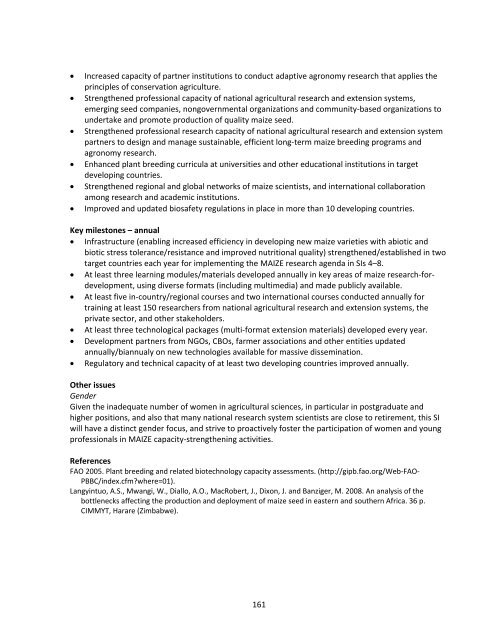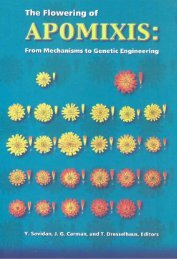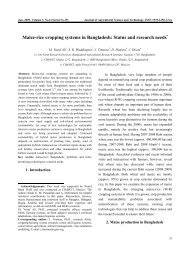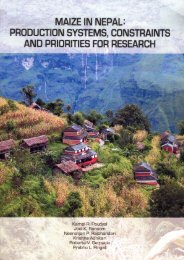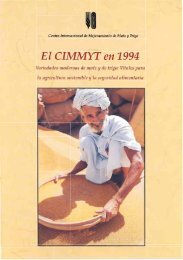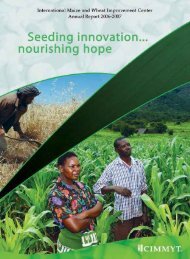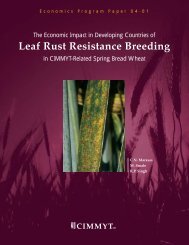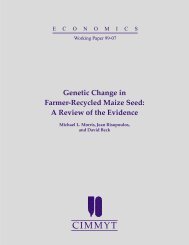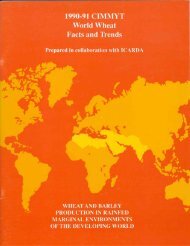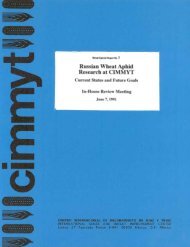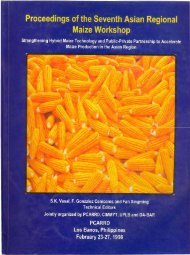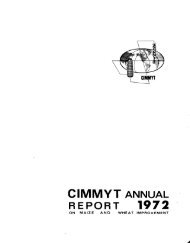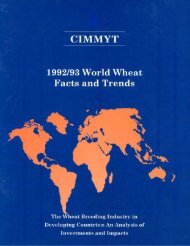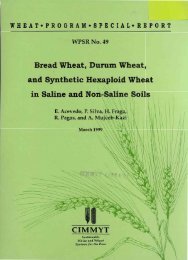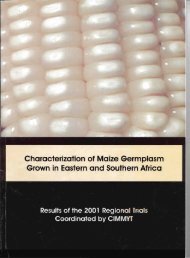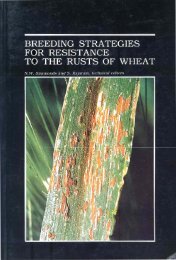Download - Maize
Download - Maize
Download - Maize
You also want an ePaper? Increase the reach of your titles
YUMPU automatically turns print PDFs into web optimized ePapers that Google loves.
Increased capacity of partner institutions to conduct adaptive agronomy research that applies the<br />
principles of conservation agriculture.<br />
Strengthened professional capacity of national agricultural research and extension systems,<br />
emerging seed companies, nongovernmental organizations and community‐based organizations to<br />
undertake and promote production of quality maize seed.<br />
Strengthened professional research capacity of national agricultural research and extension system<br />
partners to design and manage sustainable, efficient long‐term maize breeding programs and<br />
agronomy research.<br />
Enhanced plant breeding curricula at universities and other educational institutions in target<br />
developing countries.<br />
Strengthened regional and global networks of maize scientists, and international collaboration<br />
among research and academic institutions.<br />
Improved and updated biosafety regulations in place in more than 10 developing countries.<br />
Key milestones – annual<br />
Infrastructure (enabling increased efficiency in developing new maize varieties with abiotic and<br />
biotic stress tolerance/resistance and improved nutritional quality) strengthened/established in two<br />
target countries each year for implementing the MAIZE research agenda in SIs 4–8.<br />
At least three learning modules/materials developed annually in key areas of maize research‐fordevelopment,<br />
using diverse formats (including multimedia) and made publicly available.<br />
At least five in‐country/regional courses and two international courses conducted annually for<br />
training at least 150 researchers from national agricultural research and extension systems, the<br />
private sector, and other stakeholders.<br />
At least three technological packages (multi‐format extension materials) developed every year.<br />
Development partners from NGOs, CBOs, farmer associations and other entities updated<br />
annually/biannualy on new technologies available for massive dissemination.<br />
Regulatory and technical capacity of at least two developing countries improved annually.<br />
Other issues<br />
Gender<br />
Given the inadequate number of women in agricultural sciences, in particular in postgraduate and<br />
higher positions, and also that many national research system scientists are close to retirement, this SI<br />
will have a distinct gender focus, and strive to proactively foster the participation of women and young<br />
professionals in MAIZE capacity‐strengthening activities.<br />
References<br />
FAO 2005. Plant breeding and related biotechnology capacity assessments. (http://gipb.fao.org/Web‐FAO‐<br />
PBBC/index.cfm?where=01).<br />
Langyintuo, A.S., Mwangi, W., Diallo, A.O., MacRobert, J., Dixon, J. and Banziger, M. 2008. An analysis of the<br />
bottlenecks affecting the production and deployment of maize seed in eastern and southern Africa. 36 p.<br />
CIMMYT, Harare (Zimbabwe).<br />
161


